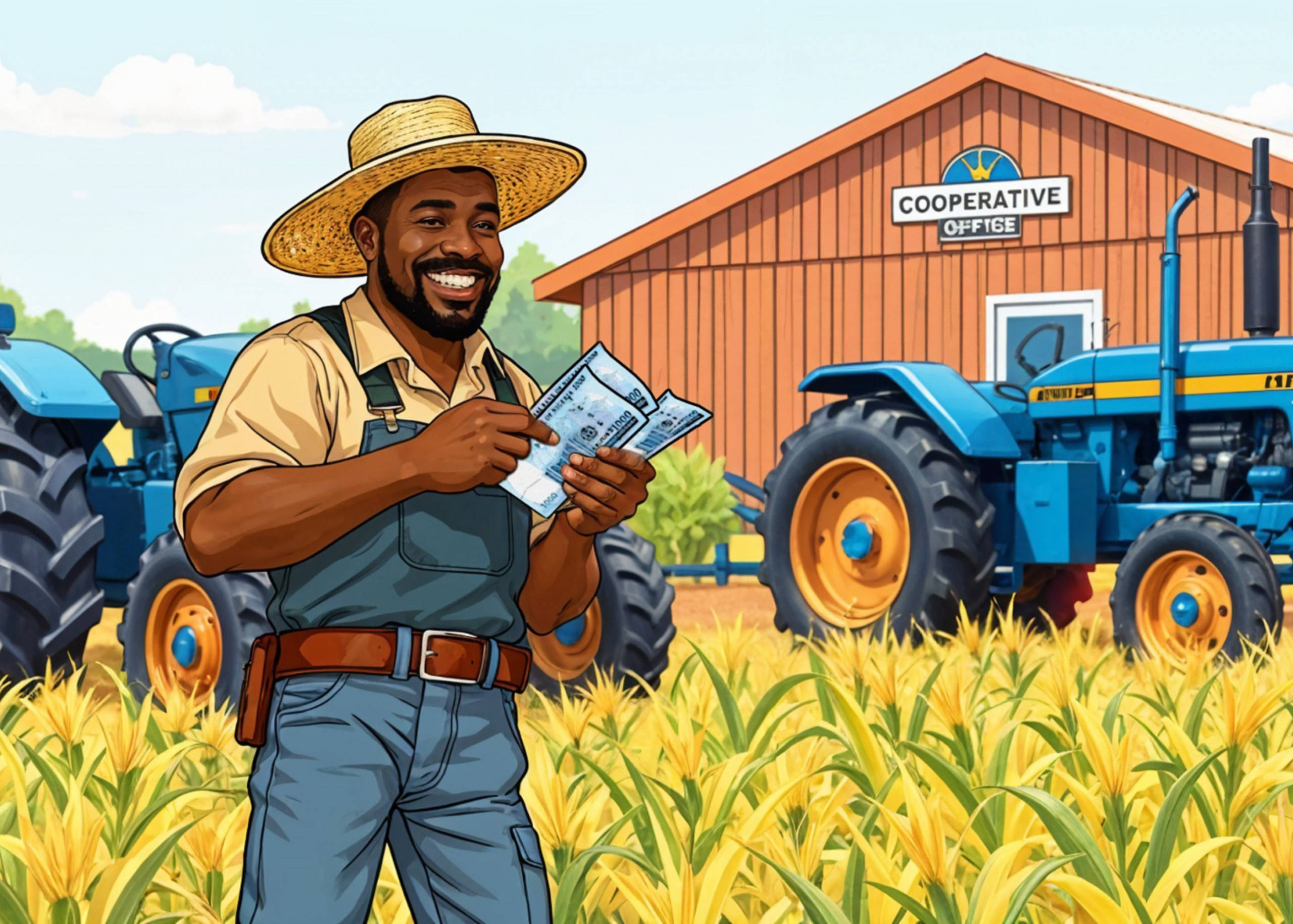Last year, while some farmers celebrated bountiful harvests, others watched helplessly as their fields were swallowed by floods, crops ruined, and financial stability shattered. This was the harsh reality for many farmers in Nigeria, especially in Kogi, Sokoto, and Borno. As the planting season approaches in Southern Nigeria in a matter of weeks, the challenges persist.
With climate change and economic uncertainty hanging over the agricultural sector, farmers face constant financial instability, grappling with limited capital and unpredictable markets. However, for Ernest Mayame, a crop farmer in Cross River State, the answer lies in collaboration. By leveraging agricultural cooperatives, he has turned his financial struggles into success. Read the inspiring story of how Mayame leveraged cooperative efforts to rise above financial challenges.
Background
Born into a family of farmers in Ogoja Local Government, Cross River State, Mayame grew up immersed in agriculture. “Farming wasn’t something I was introduced to; it was something I was born into,” he explained. His parents, both dedicated farmers, instilled in him a deep respect for agronomic practices.
As a university student at the University of Calabar, where he studied botany, he knew he wanted to use what he learned to improve the traditional farming methods he grew up with. And that’s exactly what he’s done over the past three years, successfully growing rice and cassava while blending modern techniques with the tried-and-true methods his parents taught him.
Financial challenges in farming
Farming hasn’t always been smooth sailing. For Mayame, the biggest challenge has been money—or the lack of it. “It’s one thing to know how to farm,” he says, “but managing a farm? That’s a different story.”
He emphasises that capital remains the most pressing issue for crop farmers. From acquiring land to purchasing inputs like fertilisers and hiring labour, the costs can be overwhelming. “The land tenure system in Nigeria adds to the burden,” Mayame noted. “Even if you have the skills and knowledge, without capital, starting a farm is nearly impossible.”
Inflation further complicates matters. The rising cost of fertilisers, labour, and other essentials erodes profits, leaving farmers with little to reinvest. “You might expect a 60% profit margin, but inflation can cut it down to 30%, or even less,” Mayame explained.
The role of cooperatives
Mayame’s turning point came when he joined the Alangkel Rice Cooperative Society. As a member, he contributes regularly to a shared treasury. “We pay about ₦33,000 every two weeks,” he said. These contributions create a financial safety net, allowing members to access low-interest loans during crises.
Cooperatives like Alangkel Rice Cooperative not only offer financial support but also foster a sense of community among farmers. Members can secure loans to purchase inputs or cover unexpected expenses, knowing they have a reliable support system. “It’s not just about the money; it’s about the assurance that someone has your back,” Mayame emphasised.

Beyond individual benefits, cooperatives allocate funds for external loans, enabling members to support others outside the organisation. While this carries some risk, Mayame believes it strengthens the community’s economic resilience. “It’s better than daily savings because it’s structured and goal-oriented,” he explained.
Mayame’s involvement in cooperatives has allowed him to adopt modern farming techniques. With cooperative loans, he has invested in equipment reducing labor costs and increasing efficiency. For instance, tasks that once took weeks can now be completed in a day. “Mechanisation has transformed the way we farm,” he said. “It saves time and lets us focus on other productive activities.”
He also emphasises precision farming, teaching others to use the correct quantities of seeds, fertilisers, and chemicals to minimise waste and maximize yields. “Farming is a business,” he often tells his trainees. “You need to budget and plan to see real profits.”
Climate change and resilience
Despite the benefits of cooperatives and modern techniques, climate change remains a significant challenge. Unpredictable weather patterns, such as delayed rains or floods, have disrupted planting and harvesting schedules. In 2022, late rains caused crops to remain unharvested, leading to losses when unexpected floods hit.
To mitigate these risks, Mayame collaborates with organisations that provide weather forecasts and climate information. “They send us calendars detailing expected rainfall and sunlight frequencies,” he shared. This information helps farmers plan their activities and avoid unnecessary losses.
Impact on the community
Mayame’s success extends beyond his farm. He claims to have mentored over ten aspiring farmers, teaching them sustainable practices and business strategies. “It’s not just about planting; it’s about farming smartly,” he said. His efforts have inspired others to view agriculture as a viable career.
He also advocates for a broader understanding of agriculture. “Farming isn’t just for those in the fields,” he explained. “It’s a business that involves everyone, from agrochemical producers to digital marketers.” Mayame encourages youths in Nigeria, regardless of their professions, to invest in or support agriculture.
Looking Ahead
Mayame dreams of expanding his farm and diversifying his operations. He dreams of a future where farming is not seen as a last resort but as a respected and lucrative profession. “If more people invested in agriculture, we’d solve food insecurity and create jobs,” he said.
His cooperative plans to introduce more mechanised solutions and provide greater access to resources for members. By continuing to innovate and collaborate, Mayame aims to build a legacy that transforms agriculture in his community and beyond.
Mayame’s story highlights the power of cooperatives in addressing the financial challenges of farming. By pooling resources, sharing knowledge, and fostering a sense of community, cooperatives provide a sustainable solution to the hurdles faced by Nigerian farmers. His journey serves as an inspiration, showing that with determination, innovation, and collaboration, farming can be a pathway to financial stability and national development.



